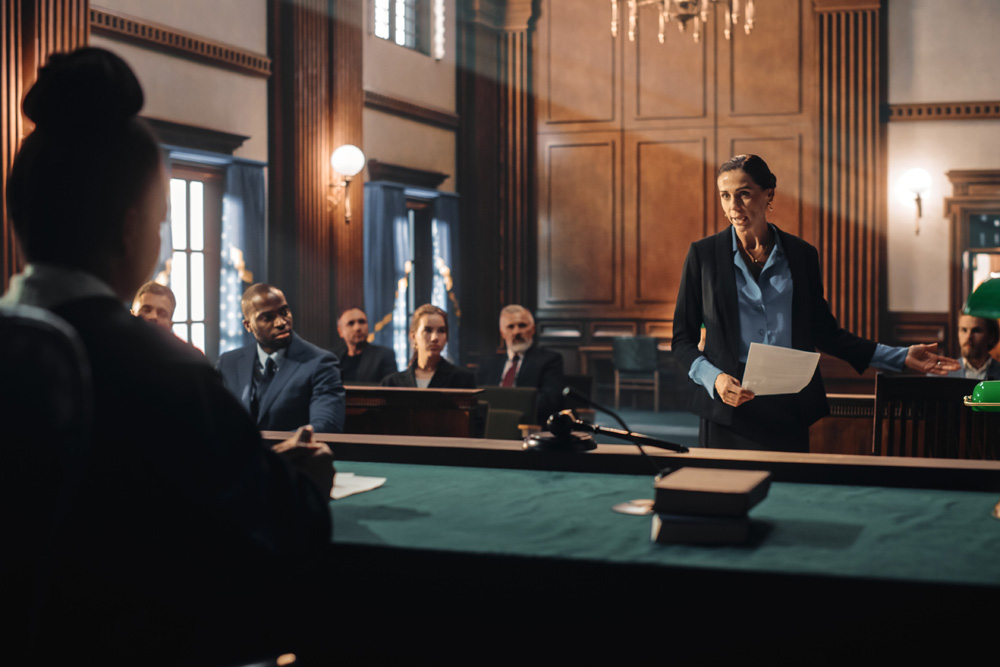
Guide to What the Prosecution Must Prove in DUI Manslaughter Cases
A DUI is a very serious offense. If a DUI results in the death of someone other than the driver, the person driving under the influence will most likely face charges for DUI manslaughter. If you are facing DUI manslaughter charges, your future is at risk. A conviction for DUI manslaughter will result in hefty fines and prison time. You will need strong legal representation in order to defend yourself against DUI manslaughter charges.
Fighter Law has a team of experienced criminal defense lawyers who know how to defend against DUI manslaughter charges. You and your board-certified lawyer from our team, including Thomas Fighter, will work together to present your side of the case and raise any possible legal defenses. Let our team walk alongside you as you defend yourself and your future against the prosecution.
Elements of DUI Manslaughter
DUI manslaughter is a second-degree felony in Florida, but it can be a first-degree felony when certain circumstances are present. For example, DUI manslaughter is a first-degree felony when the responsible driver leaves the scene of the accident.
In order for the prosecution to convict you of DUI manslaughter, they must prove the following elements:
- You were driving or in control of the vehicle that caused the accident
- You were under the influence of/impaired by drugs or alcohol at the time of the accident
- Your impaired driving caused the death of another person, either directly or indirectly
The typical DUI manslaughter conviction brings a mandatory prison sentence of four to fifteen years. Additionally, the fines that come with a conviction can reach up to $10,000. Not only do you face fines and imprisonment upon conviction, but you will also have your driver’s license revoked.
How to Defend Against DUI Manslaughter Charges
Being charged with DUI manslaughter does not mean that you will be convicted. In fact, you may be able to raise a strong legal defense that can protect you from conviction. A skilled criminal defense lawyer who is familiar with DUI manslaughter cases can investigate your case and determine which defenses are available to you.
The following are common defenses against DUI manslaughter charges:
- Dispute the Evidence: You may be able to challenge the legitimacy of the evidence of your impairment. For example, the breathalyzer test conducted on you could have yielded faulty results due to poor maintenance of the equipment.
- No Probable Cause: You have certain rights under the Constitution, and those rights could have been violated by the police officer on the scene. You could argue that the officer did not have sufficient probable cause to question your sobriety and submit you to a field sobriety test in the first place.
- Challenge the Accident’s Cause: You may be able to argue that something or someone else was the real cause of the accident in question.
- Lack of Due Process: Under the Constitution, you have the right to due process of law. If the officer failed to read you your Miranda Rights upon arrest, you can argue that your due process rights were violated.
You will need a skilled legal advocate on your side as you defend against DUI manslaughter charges. A seasoned criminal defense attorney will know which legal defenses to raise in your case, and they will represent you well in court.
Reach Out to Fighter Law’s Experienced Criminal Defense Lawyers Today to Discuss Your Case
A conviction of DUI manslaughter entails large fines and lengthy prison sentences. That is why you must do everything you can to defend yourself against the prosecution. If you want to protect your rights and your future, you should consult with one of our talented criminal defense lawyers.
Fighter Law cares about helping people like you defend against DUI manslaughter charges. Let us handle your case today. Please call (407) 344-4837 or fill out our contact form here to schedule a consultation.
Share:
free case evaluation
Fill out the form below for an free evaluation of your case.
Categories
- Birth Injury
- Boating Accidents
- Car Accidents
- Civil Rights
- Criminal Defense
- Cyberstalking
- Divorce
- Dog Bite Injury
- Domestic Abuse Charges
- Domestic Violence
- Drug Charges
- DUI Charges
- Family Law
- Felonies
- Fighter Law Firm
- Firearms
- Firm News
- Guardianship
- Injunction Removal
- Injunctions
- Marketing
- Personal Injury
- Repeat Violence Injunction
- Restraining Order
- Seal and Expunge
- Sex Crimes
- Slip and Fall
- Stalking Injunction
- Theft and Robbery
- Theme Park Trespasses
- Traffic tickets
- Uncategorized

